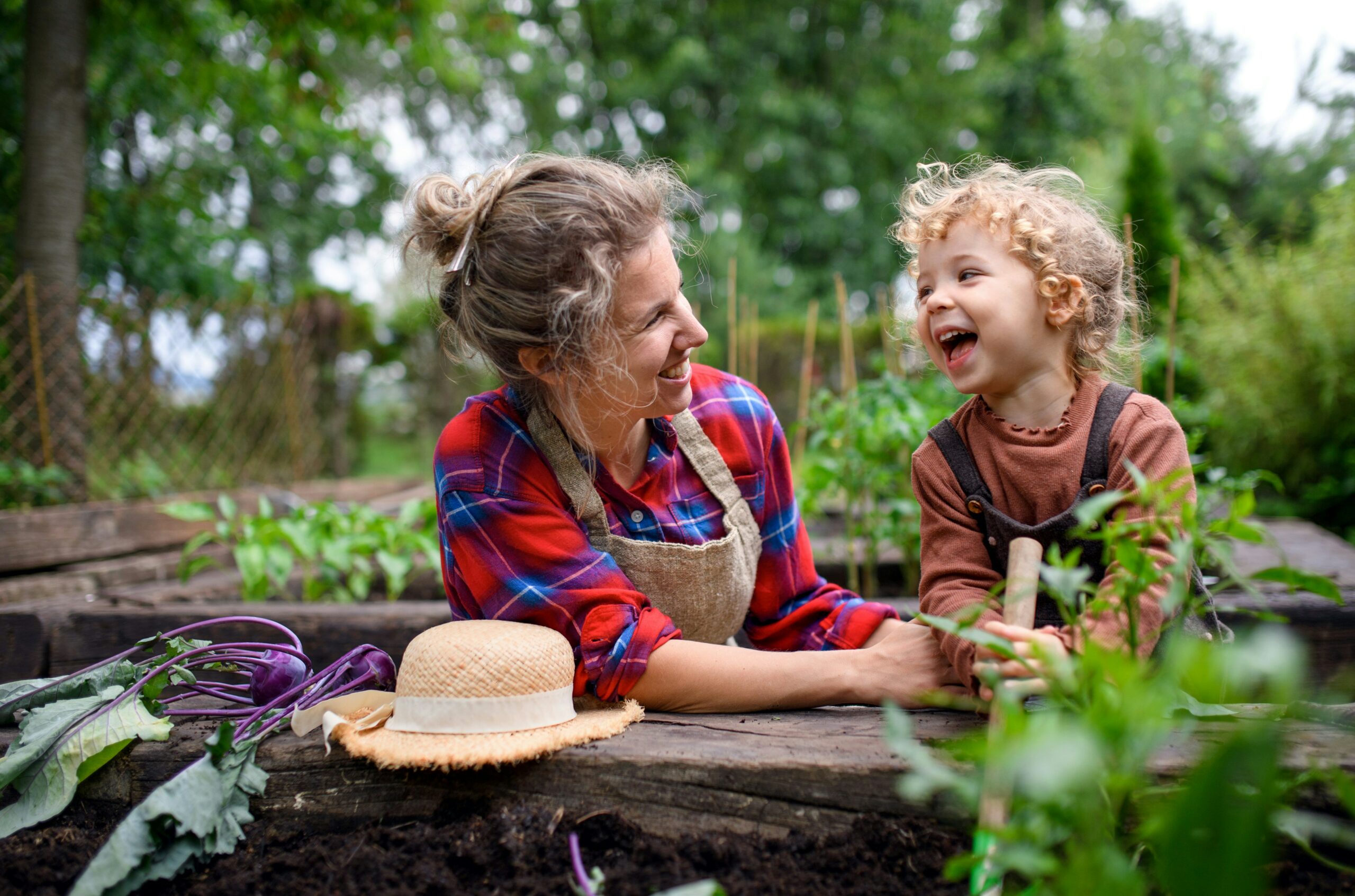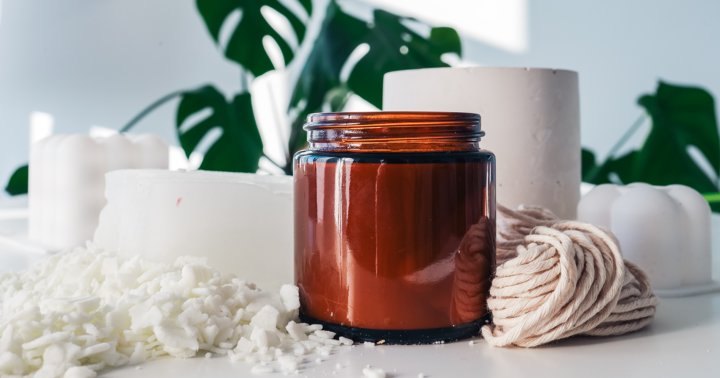Why We Should All Be Doing More Work
Work more? Look, Karen, I’m too overwhelmed and stressed as it is. What the heck are you talking about? Let me see if I can explain. I don’t mean for you to work overtime, add a side hustle, or...


Work more? Look, Karen, I’m too overwhelmed and stressed as it is. What the heck are you talking about?
Let me see if I can explain. I don’t mean for you to work overtime, add a side hustle, or otherwise try to bring in more income. I mean that all of us should get active instead of passive.
We often think of people in the past living a “simple” life compared to our modern experience, but they certainly worked harder for it. My grandmother grew a garden, tended goats and chickens, and cooked from scratch every day. My mother sewed almost all the clothes she and my sister and I wore. My grandfather and dad always had something that needed maintenance or repair, in addition to the physically taxing jobs they did for pay.
The Passive Life
Most of us sit in front of computers all day, and then sit in front of a TV in the evening. This gets boring, so we snack. Snacking loses its power to distract us, so we buy more treats. Or we scroll social media or shop online, all to keep our brains happy with another shot of dopamine.
We’re all more or less guilty of passivity. That’s usually what streaming, scrolling, liking, and clicking is all about – those behaviors take the place of any real activity. We want to be entertained and stimulated, but it all comes from outside. We don’t do much to entertain or stimulate ourselves.
What did you do before you had a smart phone? What did you do before you had a computer in your home? What did our ancestors do before they had TVs or radios?
The Active Life
Didn’t they figure out ways to entertain themselves? They played instruments or sang, told stories or read books aloud, took walks, played cards, had conversations. Or they got creative with knitting, crochet, embroidery, drawing, painting, wood carving, and more.
And there was almost always some sort of work to be done.
Did you know our brains release dopamine when we complete tasks? You could get a sense of accomplishment this evening by vacuuming the house (no Roomba!), hand washing the car, or weeding your flowerbed. You could energize your morning by dusting furniture, chopping vegetables for salads or soup, or ironing the shirts you need for the week.
As Katie Shaw at heartscontentfarmhouse.com says, “If you sit around all day, even a nice soft chair won’t make you happy…. If you wake up early and go weed your garden and then paint a fence, a nice shower and a hot cup of coffee sure feels great.”
We might all appreciate our rest and relaxation more if we did a bit more work. Instead of always reaching for what’s convenient, we could stay busy and productive in real, hands-on ways.
How To
I admit this can be a challenge. I’m a writer. By necessity, I spend many hours in front of my computer every day. But I could take time to do all kinds of tasks throughout the day, such as:
• make my bed
• fold and put away clean clothes
• walk around the block to the mailbox
• hand wash my lunch dishes
• start dinner in the slow cooker
• sweep the front porch (which can always use it)
• sew on that button
• pay that bill
• call and make that appointment
• sort the recycling and take out the garbage
This evening, before I reach for my phone or turn on the TV to “see what’s on” (with nothing specific that I want to watch), I could:
• write a short letter to my elderly uncle who doesn’t do email
• call my son or my mother-in-law and chat
• persuade my husband to play Bananagrams (and get a little brain exercise)
• begin studying the solos I’ll be performing in concerts this spring
• write and (badly) illustrate a silly mini story for my grandsons (they love my efforts)
• read a book
• do some work on the embroidery project I set aside before the holidays last year
• make a grocery list
• reread the article on SEO best practices that I basically need to memorize
• declutter a couple of drawers and one of the shelves in my kitchen closet
… and I could probably go on if I really put my mind to it! There’s no reason for me to scroll or stream for no purpose.
I’m definitely not suggesting we should never rest or relax, or that every day needs to be a frantic rush of tasks to complete. In fact, I don’t remember my grandparents ever being in a hurry, though they moved smoothly from one task to another all day long. I don’t think they kept long “to do” lists – they just kept busy. They rested when it was natural to do so – at mealtimes, with a hot or cold drink in the afternoon, and for the last hour or so before bedtime.
But while Granddad might skim through the newspaper at breakfast, and Grandma might listen to her soaps on the radio while she cooked or cleaned, these pastimes fit into an otherwise very active lifestyle. If they hadn’t had the newspaper or radio, they would have hummed, whistled, or sung while they kept busy (as I remember my mother doing when I was small).
Put It To The Test
If we keep busy with tasks (large and small) for the majority of our waking hours, our brains will continue to release dopamine each time we complete a job. Since dopamine causes pleasure, happiness, and motivation, our brains encourage us to move on to the next task so the dopamine reward can be repeated.
That’s why it’s important to break big, complex projects into smaller sub-tasks. As we complete each step of the job, the dopamine release gives us a feeling of achievement and energy for the next phase.
Instead of stalling that can-do feeling by turning to our devices when we’re “bored” (or substituting likes, updates, and online shopping as “tasks” we do to get a dopamine fix), turn to a worthwhile activity instead. It doesn’t have to be big, but you’ll still get the positive feedback from your brain when you complete it. And – you know – you’ll actually be accomplishing something.
At the end of the day, all that dopamine will have improved attention, memory, and satisfaction – plus you’ll have multiple worthwhile accomplishments to show for it! Rather than passively ingesting something from a screen, you’ll have actively engaged with and improved your surroundings. You’ll go to bed feeling legitimately successful, which seems like a recipe for a good night’s sleep.
By the way, I think all of that dopamine will suppress your feelings of stress and overwhelm, too. You’ll do more work yet feel more at ease.
***
About the Author: Karen Trefzger is a writer, singer, teacher, wife, mother, and grandmother who has been choosing a simpler life for over 20 years. She is the author of several books about minimalism, and blogs at Maximum Gratitude Minimal Stuff.

 Lynk
Lynk 































![Are You Still Optimizing for Rankings? AI Search May Not Care. [Webinar] via @sejournal, @hethr_campbell](https://www.searchenginejournal.com/wp-content/uploads/2025/06/1-1-307.png)